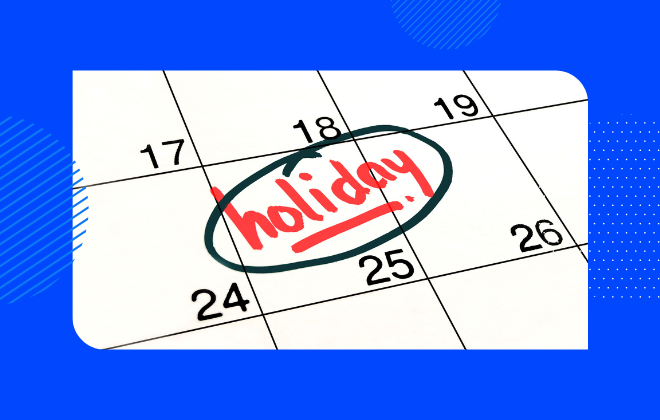With seasonal events and holidays happening year-round, businesses must have well-crafted marketing strategies in place to effectively reach their target audience. While there are many channels to choose from, paid search advertising remains one of the most effective ways to reach potential customers during seasonal events and holidays. However, to get the most out of your paid search strategy, you need to optimize it for the occasion.
In this guide, we’ll share tips and best practices for optimizing your paid search strategy for seasonal events and holidays. From keyword research to conversion tracking, we’ll cover everything you need to know to make the most of your PPC advertising campaigns. Let’s get started!
Keyword Research
Before launching any paid search campaign, you need to conduct keyword research to identify the terms and phrases your target audience is searching for. During seasonal events and holidays, this becomes even more important as search behaviour can change dramatically. People may be looking for gifts, decorations, travel, or food, depending on the occasion.
To conduct effective keyword research, start by using a keyword research tool like Google Keyword Planner or SEMrush. Look for keywords and phrases that are relevant to your business and that have a high search volume during the holiday season. You may also want to consider long-tail keywords, which are more specific and often have lower competition.
Consider using a combination of broad match, phrase match, and exact match keywords to ensure that your ads are showing up for relevant searches. Additionally, use negative keywords to exclude irrelevant searches and ensure that your budget is being used as efficiently as possible.
Once you have a list of keywords, group them into themes or categories that align with your products or services. For example, if you’re a clothing retailer, you may want to group keywords related to winter fashion, holiday party outfits, and gift ideas.
Ad Targeting
Ad targeting is another crucial part of a successful PPC advertising campaign. During seasonal events and holidays, it’s important to target your ads to the right audience to maximize their effectiveness.
Consider using demographic targeting to target specific age groups, genders, and geographic locations. You can also use audience targeting to target users who have previously interacted with your brand or are in the market for your products or services. Consider who your ideal customer is and adjust your targeting settings accordingly. For example, if you’re targeting parents looking for children’s gifts, you may want to target women between the ages of 25 and 45.
Another advanced technique for ad targeting is to use custom intent audiences. Custom intent audiences allow you to target users who have searched for specific keywords or visited specific websites, which can be particularly effective during seasonal events and holidays when users may be searching for specific products or services.
An additional way to target your audience is through location targeting. If you have a physical store, you may want to target people in your local area. If you’re an online retailer, you may want to target people in areas where your products are most popular.
Ad Scheduling
Ad scheduling allows you to show your ads at specific times of the day or week. During seasonal events and holidays, ad scheduling becomes even more important as you want to make sure your ads are running when your target audience is most likely to be searching.
To schedule your ads effectively, consider the time zones of your target audience and adjust your scheduling accordingly. For example, if you’re targeting people on the East Coast of the United States, you may want to schedule your ads to run from 9am to 5pm Eastern Time. You may also want to consider dayparting, which allows you to show your ads during specific times of the day. For example, if you’re running a promotion that’s only valid during business hours, you may want to schedule your ads to run from 9am to 5pm.
Additionally, consider using ad scheduling to adjust your budget allocation. For example, if you know that your target audience is more likely to search for your products or services on weekends, consider allocating more budget to those days.
Campaign Management
Campaign management is the process of monitoring and adjusting your campaigns to ensure that they are performing as effectively as possible. During seasonal events and holidays, it’s especially important to closely monitor your campaigns to ensure that you’re maximizing your ROI.
Consider using automated rules to help you manage your campaigns more effectively. Automated rules allow you to set specific parameters for your campaigns, such as increasing or decreasing bids based on performance, and the system will automatically make the adjustments for you.
Additionally, use A/B testing to test different ad copy, landing pages, and calls to action. By testing different elements of your campaigns, you can identify what’s working and what’s not and make adjustments accordingly.
Finally, use data analysis to optimize your campaigns. Analyze your campaign data regularly to identify trends and patterns, and use that information to adjust your campaigns as needed. By constantly monitoring and adjusting your campaigns, you can ensure that you’re getting the most out of your paid search strategy during seasonal events and holidays.
Conversion Tracking
Tracking conversions is a crucial part of any PPC advertising campaign, and it’s even more important during seasonal events and holidays. Conversion tracking allows you to see which keywords, ad groups, and campaigns are driving the most conversions, whether those conversions are sales, leads, phone calls, or other types of actions.
To get the most out of conversion tracking during seasonal events and holidays, consider setting up multiple conversion actions to track different types of conversions. For example, if you’re running an e-commerce store, you may want to track sales, email sign-ups, and abandoned cart recoveries as separate conversion actions.
Additionally, use the data from your conversion tracking to optimize your campaigns. Identify which keywords and ad groups are driving the most conversions, and allocate more budget to those areas. Consider adjusting your bids for keywords that aren’t converting as well to try to improve their performance.
Budget Planning
Managing your budget effectively is crucial to getting the most out of your paid search campaigns during seasonal events and holidays. However, it’s not just about setting a budget and allocating it to your ad groups. To truly optimize your budget, you need to constantly monitor and adjust your campaigns based on performance.
Consider using automated bidding strategies to help you manage your budget more effectively. These strategies use machine learning algorithms to adjust your bids based on a variety of factors, including ad position, competition, and conversion rate. By using automated bidding, you can ensure that your budget is being used as efficiently as possible.
Additionally, consider using a shared budget for your campaigns during seasonal events and holidays. A shared budget allows you to allocate a single budget to multiple campaigns, which can help you maximize your exposure during peak periods. Just be sure to monitor your campaigns closely to ensure that you’re not overspending in any one area.
Seasonal Marketing
Seasonal marketing is a powerful tool for driving conversions during holidays and seasonal events. However, to truly optimize your seasonal marketing, you need to do more than just add some festive imagery to your ads.
Consider creating dedicated landing pages for your seasonal campaigns. These landing pages should be designed to capture the attention of your target audience and make it clear why your products or services are the perfect fit for their holiday needs.
Additionally, consider running promotions and offering seasonal discounts to entice customers to make a purchase. However, be sure to promote these discounts and promotions prominently in your ads and on your landing pages to maximize their effectiveness.
Finally, use your seasonal marketing campaigns to build long-term relationships with your customers. Consider offering exclusive deals or early access to new products or services to customers who make a purchase during the holiday season. By doing so, you can encourage them to come back and make additional purchases throughout the year.
Conclusion
Optimizing your paid search strategy for seasonal events and holidays is essential to driving conversions and maximizing your return on investment. By conducting effective keyword research, targeting your audience, scheduling your ads, and tracking your conversions, you can ensure your campaigns are as effective as possible. At Datawyze, we specialize in helping businesses optimize their digital marketing campaigns for seasonal events and holidays. Contact us today to learn how we can help you get the most out of your paid search strategy and drive more conversions during the upcoming holiday season.
We understand the importance of having a well-organized social media content calendar to effectively plan and execute marketing campaigns. Our social media content calendar tool has allowed us to accurately prepare for various seasonal events and holidays, ensuring that our clients’ campaigns are timely, relevant, and reach the intended audience. By using our tool, we can schedule posts in advance, track their performance, and adjust accordingly to optimize our clients’ paid search strategies. We encourage you to download your own copy of our social media content calendar to streamline your marketing efforts and stay ahead of the competition.





